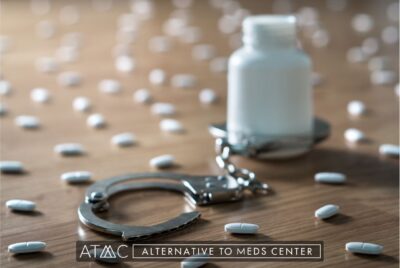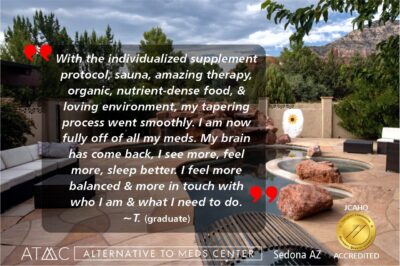1. W. B. Siesser, Benjamin D. Sachs, A.J. Ramsey, T.D. Sotnikova, Jean-Martin Beaulieu, X. Zhang, M.G.Caron, Raul R. Gainetdinov, “Chronic SSRI Treatment Exacerbates Serotonin Deficiency in Humanized Tph2 Mutant Mice“, US National Library of Medicine [INTERNET] 2013 Jan 16, updated online 2012 Oct 1 [cited 2023 April 3]
2. FDA label Celexa [cited 2023 April 3]
3. Cuomo I, Kotzalidis GD, Caccia F, Danese E, Manfredi G, Girardi P. Citalopram-associated gambling: a case report. J Gambl Stud. 2014 Jun;30(2):467-73. doi: 10.1007/s10899-013-9360-2. PMID: 23385394. [cited 2023 April 3]
4. Fava GA, Offidani E. The mechanisms of tolerance in antidepressant action. Prog Neuropsychopharmacol Biol Psychiatry. 2011 Aug 15;35(7):1593-602. doi: 10.1016/j.pnpbp.2010.07.026. Epub 2010 Aug 20. PMID: 20728491. [cited 2023 April 3]
5. Bouwer CD, Harvey BH. Phasic craving for carbohydrate observed with citalopram. Int Clin Psychopharmacol. 1996 Dec;11(4):273-8. doi: 10.1097/00004850-199612000-00009. PMID: 9031994. [cited 2023 April 3]
6. Read J, Cartwright C, Gibson K. How many of 1829 antidepressant users report withdrawal effects or addiction? Int J Ment Health Nurs. 2018 Dec;27(6):1805-1815. doi: 10.1111/inm.12488. Epub 2018 Jun 5. PMID: 29873165. [cited 2023 April 3]
7. Davies J, Read J, A systemaatic review into the incidence, severity, and duration of antidepressant withdrawal effects: Are guidelines evidence-based? Addictive Behaviors Journal Vol. 97 October 2019 [cited 2023 April 3]
8. Gautam M, Tripathi A, Deshmukh D, Gaur M. Cognitive Behavioral Therapy for Depression. Indian J Psychiatry. 2020;62(Suppl 2):S223-S229. doi:10.4103/psychiatry.IndianJPsychiatry_772_19 [cited 2023 April 3]
9. Yeung KS, Hernandez M, Mao JJ, Haviland I, Gubili J. Herbal medicine for depression and anxiety: A systematic review with assessment of potential psycho-oncologic relevance. Phytother Res. 2018 May;32(5):865-891. doi: 10.1002/ptr.6033. Epub 2018 Feb 21. PMID: 29464801; PMCID: PMC5938102. [cited 2023 April 3]
10. Sarris J, McIntyre E, Camfield DA. Plant-based medicines for anxiety disorders, part 2: a review of clinical studies with supporting preclinical evidence. CNS Drugs. 2013 Apr;27(4):301-19. doi: 10.1007/s40263-013-0059-9. Erratum in: CNS Drugs. 2013 Aug;27(8):675. Dosage error in article text. PMID: 23653088. [cited 2023 April 3]
11. Penckofer S, Kouba J, Byrn M, Estwing Ferrans C. Vitamin D and depression: where is all the sunshine?. Issues Ment Health Nurs. 2010;31(6):385-393. doi:10.3109/01612840903437657 [cited 2023 April 3]
12. Dirmaier J, Steinmann M, Krattenmacher T, Watzke B, Barghaan D, Koch U, Schulz H. Non-pharmacological treatment of depressive disorders: a review of evidence-based treatment options. Rev Recent Clin Trials. 2012 May;7(2):141-9. doi: 10.2174/157488712800100233. PMID: 22353197. [cited 2023 April 3]
13. Teicher MH, Glod CA, Cole JO. Antidepressant drugs and the emergence of suicidal tendencies. Drug Saf. 1993 Mar;8(3):186-212. doi: 10.2165/00002018-199308030-00002. PMID: 8452661. [cited 2023 March 30]
14. Sharbaf Shoar N, Fariba KA, Padhy RK. Citalopram. [Updated 2021 Dec 11]. In: StatPearls [Internet]. Treasure Island (FL): StatPearls Publishing; 2023 Jan-. Available from: https://www.ncbi.nlm.nih.gov/books/NBK482222/ [cited 2023 April 3]
15. Sheffler ZM, Patel P, Abdijadid S. Antidepressants. [Updated 2023 May 26]. In: StatPearls [Internet]. Treasure Island (FL): StatPearls Publishing; 2024 Jan-. Available from: https://www.ncbi.nlm.nih.gov/books/NBK538182/ [cited 2024 June 10]
16. Madhukar H. Trivedi, M.D., Maurizio Fava, M.D., Stephen R. Wisniewski, Ph.D. Michael E. Thase, M.D. Frederick Quitkin, M.D. Diane Warden, Ph.D., M.B.A. Louise Ritz, M.B.A.,+6 for the STAR*D Study Team Medication Augmentation after the Failure of SSRIs for Depression New England Journal of Medicine [published Mar 23, 2006] [cited 2024 June 10]

 Addiction to antidepressants is reportedly relatively rare. Nonetheless, a research study published in the International Journal of Mental Health Nursing found that 27% of a group of nearly 2000 patients taking antidepressants reported they felt addicted to the antidepressant drug they were taking.6
Addiction to antidepressants is reportedly relatively rare. Nonetheless, a research study published in the International Journal of Mental Health Nursing found that 27% of a group of nearly 2000 patients taking antidepressants reported they felt addicted to the antidepressant drug they were taking.6 Many people may be frightened and unsure of
Many people may be frightened and unsure of 







